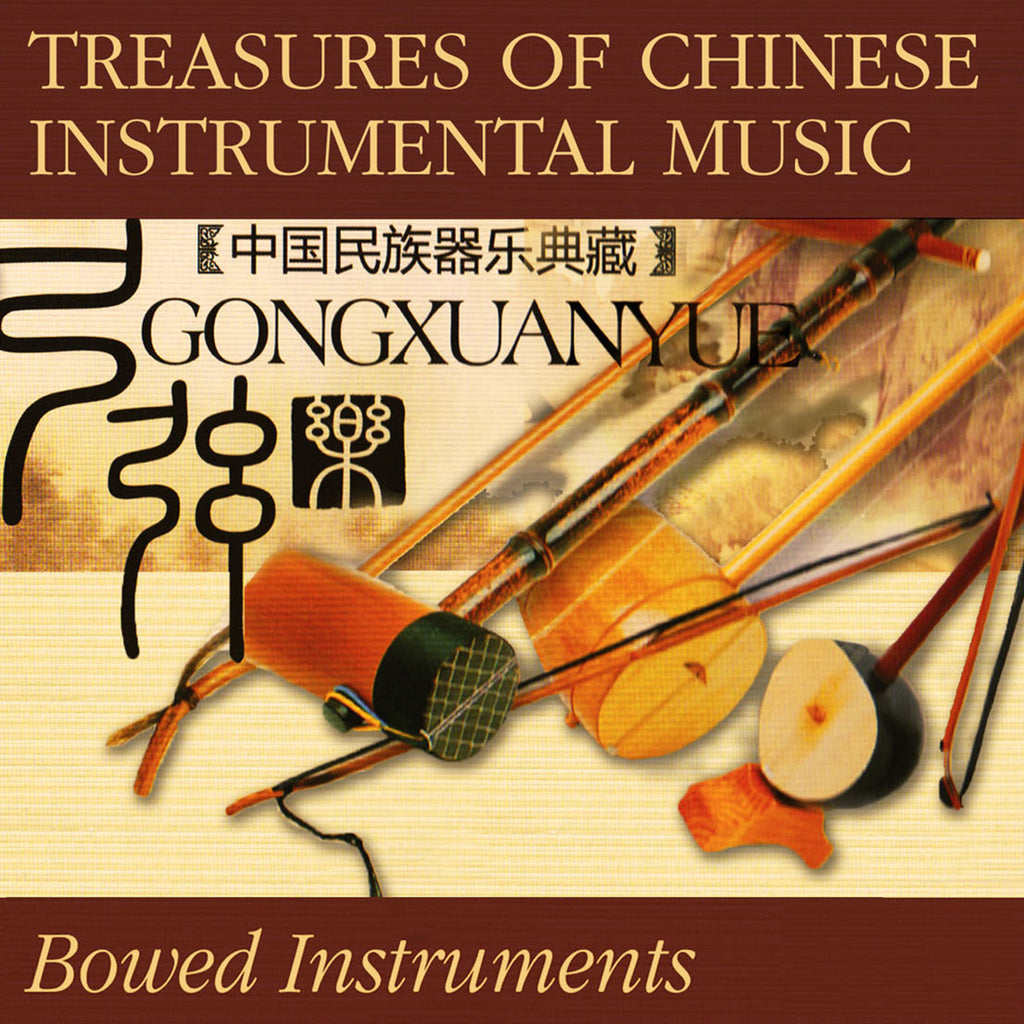
Bowed Instruments (Various Artists)
Release Date : September 11, 2012
Catalog : 73196-2
Format : Digital Download (AAC, Mp3)
Treasures of Chinese Instrumental Music is a carefully curated collection that highlights the finest recordings of traditional Chinese instrumental music, spanning from ancient times to the present. This remarkable compilation features rare and previously unreleased performances, including solo, duet, ensemble, and orchestral works by esteemed musicians.
Chinese bowed instruments, or huqin, are a family of string instruments played with a bow. They are used in traditional and modern Chinese music, ranging from folk to classical and even contemporary fusion. Here are some of the most well-known ones:
1. Erhu
2. Gaohu
3. Zhonghu
4. Jinghu
5. Sihu
6. Dahu
| T R A C K S |
VOLUME 1
01. Xiao Kaimen
02. Profound Night
03. Outskirts Of Beijing
04. Autumn Moon On Quiet Lake
05. Spring Comes To The Country
06. Shuang Sheng Hen
07. Yang Cuixi
08. Arrays
09. Dui Hua
10. Ospreys Sporting With Water
11. Toll From Temple
12. On The Prairie
13. Thoughts Beyond The Frontiers
14. Lady Of The Qin Dynasty
15. Music For The New Year
VOLUME 2
01. The Tunes Of Shaanxi Opera
02. Brother Comes Back
03. A Shangdong Tune
04. Hebei Huabangzi
05. Festival In Changchun
06. Spring Willow In The Wind
07. Crescent Before Dawn
08. Grand Overture
09. Beautiful Girl
10. Ba Da Chui
11. Combination Of Sheng And Guan
12. Liu Ye Jin
13. Shadow Tune
14. Horses Galloping
15. Love Of Donkir
| C R E D I T S |
Executive Producer : Eiichi Naito
Artists + Repertoire, Remastering : Dino Malito






